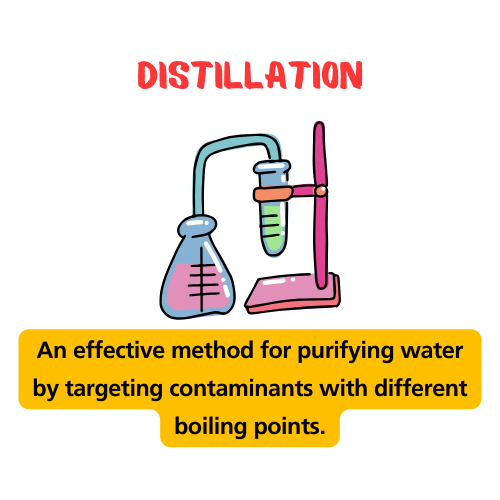Distillation is a separation process that is commonly used in various aspects of daily life to purify liquids, separate components, or concentrate substances. Here are some daily life examples of distillation:
Water Purification:
- Distillation is employed in water treatment plants to purify water by separating it from impurities and contaminants. The process involves boiling water and then condensing the vapor back into liquid form, leaving impurities behind.
Alcohol Production:
- Distillation is a key step in the production of alcoholic beverages. During fermentation, the liquid mixture is distilled to separate and concentrate the alcohol, producing beverages like whiskey, vodka, and gin.
Perfume Manufacturing:
- Essential oils used in perfumes are often obtained through distillation. Steam distillation is a common method to extract aromatic compounds from plants, producing concentrated fragrances.
Petroleum Refining:
- Fractional distillation is a crucial process in the refining of crude oil to obtain various components such as gasoline, diesel, and kerosene, each with different boiling points.
Cooking and Food Processing:
- In cooking, distillation occurs when vaporizing and condensing the steam during the cooking process. Additionally, the production of extracts like vanilla extract involves distillation.
Laboratory Applications:
- Distillation is a common technique in laboratories for purifying solvents, separating chemical components, or concentrating solutions.
Herbal Medicine:
- Distillation is used in the extraction of essential oils from medicinal herbs for use in traditional or alternative medicine.
Production of Essential Oils:
- Many essential oils used in aromatherapy and wellness products are obtained through distillation processes, extracting concentrated fragrances from plant materials.
How does the distillation process work?
In simple terms, the distillation process works by heating a liquid to create vapor and then cooling that vapor to turn it back into a liquid. This separation method is based on the different boiling points of substances, allowing for the purification or separation of components in the liquid.

